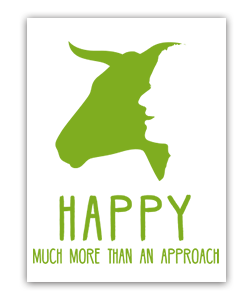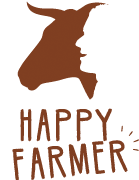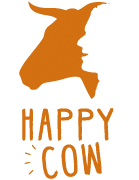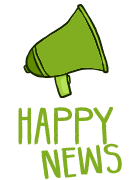Discover the approach

“To showcase our breeders who are doing a great job, suggest to them ways of securing their performances and to participate actively in the development of a common approach in order to improve the happiness of the animals and to meet vets who share this measure. This is what led me to adhere to the HAPPY approach from the begenning. Anyway we must review our practices to meet the our customers interests and also theirs: consumers!” Alexandre Vouillot – Vet at Houtaud (25)
“Over the years, we have built a relationship of trust and the breeders seek our advices before investing. These advices most times are about nursery plans and on the design of the building but the breeder remains the one who makes the final decisions. We have as much cost of prevention as of curative care in many farms. It is more pleasant to work upstream than to intervene in an emergency. As a veterinarian, I feel more useful.” Roland Van Unen – Vet at St Germain Laval
“The traditional rural care visits to sick animals have become minority. Rather than being called to care sick animals, now I work to prevent them from being sick. It changes a lot in my personal and professional balance, I really do the job I dreamed of when I was a child!” Jean Yves Roux – Vets at Pont de Vaux (01)
“The happiness of animals and men in breeding! this is the main point, I am very sensitive to animals wellbeing, that’s why I love the trimming. The effect is immediate with a limping cow for example, I treats it and it comes out of the box without limping” Mickael Delbouvry – Veterinary surgeon in Laffeuillade en Vezie (15)
“I want to thank the Obione team for their welcome and especially for offering us this exciting human and technical adventure” Luca Fabozzi –Veterinary surgeon in Secondigny (79)
“I’m very inspired having experiencing this rewarding adventure. Waiting our next meetings! And now, let’s get to work! Let’s help our breeders and their cows to be HAPPY! “ Sébastien Davrou – Veterinarian in St Germain Laval (42)
Treat sick animals and even better, keep them healthy!
The veterinarian has in his car, his clinic and in his head all the medicines which allow to treat sick animals.
But the times have changed, the expectations of the breeders and the consumers have evolved. And both of them agree on the fact that the role of the veterinarian is no longer only the one who treat the sick animal but also the one who allows the herd to remain healthy. And without using medication if possible.
And it’s possible!
From our years of experience spent in herds with problems, sometimes serious, throughout our audits, breeding visits and follow-ups, thanks to the training courses carried out all over the world and the visits of herds carried out in these countries: USA, Holland, Israel, Poland, Spain, Italy……, we have acquired the certainty that Health is based on simple but uncompromising concepts: animal management, comfort and nutrition are the keys to success.
Others had gone ahead and said “the microbe is nothing, the ground is everything!”
What is the purpose of a vaccine for mothers if calves do not drink colostrum? How to control mastitis without controlling what will be in contact with the udder for at least 12 hours per day, litter and therefore ventilation, density of animals in the building, luminosity which allow the evacuation of moisture and Drying of sleeping areas?
A mastitis represents nearly € 600 of loss. In calculating the cost of the disease, the cost of treatment does not intervene as it’s low compared to the costs of transmission of the disease to other cows, early reforms, discarded milk, but also not produced! the first concern is not to have cheaper drugs, but to have less mastitis!
Our role as veterinarians is to limit the number of sick animals and ensure the highest possible level of animals comfort at all times.
Our goal is to offer to our customers the best techniques to help cows to calve easily, to find ways to ensure optimum comfort for dry cows in early lactation, knowing that this comfort will prevent most diseases. Every year we hold meetings and trainings on the management of the first hours of life because these first hours influence the success of the adult animal that will become the young newborn calf. The quality of these early hours of life depends on the career and longevity of the animals. It’s worth to devote some of the time for this animal!
It is our commitment as HAPPY VET, it is our satisfaction as a veterinarian and our pride as a partner of breeders with whom we work every day.
Testimonials/ Feedback
“Happy, an approach with the veterinarians “Positive communication, a crutial challenge”
In our structure, we are about 10 veterinarians, and we will probably be at 11 next winter. We are four vets in rural. I moved to Montrevel-en-Bresse in 2000. Initially, I practiced as a mixed practitioner, but I had a strong preference for breeding practice. This preference led me quite naturally to acquire additional skills … Continue reading “Happy, an approach with the veterinarians “Positive communication, a crutial challenge”
















